Enjoying the content on 3QD? Help keep us going by donating now.
Category: Recommended Reading
Perfect Mix of Witty and Clever
Chloe Nannenstad in Reader’s Digest:
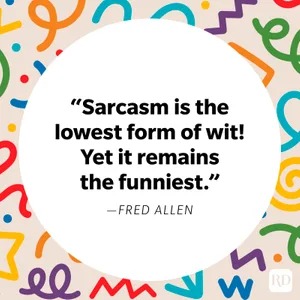 Love ’em or hate ’em, there’s a reason sarcasm quotes are all over the internet. Like funny sayings, sarcasm quotes play with the interpretation of words and tone in a way that can stretch your brain if you’re not expecting it. To use sarcasm, you have to say something that’s the opposite of what you mean (kind of like uttering a funny inspirational quote when you’re trying to be anything but inspiring). To understand sarcasm, you have to pick up on both the literal meaning and the underlying sentiment. Sarcasm is a true lie.
Love ’em or hate ’em, there’s a reason sarcasm quotes are all over the internet. Like funny sayings, sarcasm quotes play with the interpretation of words and tone in a way that can stretch your brain if you’re not expecting it. To use sarcasm, you have to say something that’s the opposite of what you mean (kind of like uttering a funny inspirational quote when you’re trying to be anything but inspiring). To understand sarcasm, you have to pick up on both the literal meaning and the underlying sentiment. Sarcasm is a true lie.
1. “I like long walks, especially when they are taken by people who annoy me.” —Fred Allen
2. “If you find it hard to laugh at yourself, I would be happy to do it for you.” —Groucho Marx
3. “History teaches us that men and nations behave wisely once they have exhausted all other alternatives.” —Abba Eban
4. “I cannot speak well enough to be unintelligible.” —Jane Austen, Northanger Abbey
5. “When one door closes, another opens. Or you can open the closed door. That’s how doors work.” —Unknown
More here.
Enjoying the content on 3QD? Help keep us going by donating now.
Your Brain Holds Secrets. Scientists Want to Find Them
Paula Span in The New York Times:
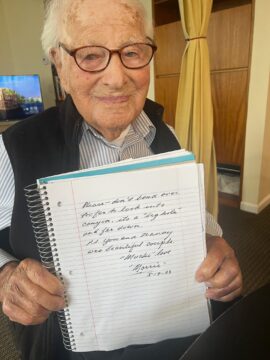 About a month ago, Judith Hansen popped awake in the predawn hours, thinking about her father’s brain.
About a month ago, Judith Hansen popped awake in the predawn hours, thinking about her father’s brain.
Her father, Morrie Markoff, was an unusual man. At 110, he was thought to be the oldest in the United States. His brain was unusual, too, even after he recovered from a stroke at 99.
Although he left school after the eighth grade to work, Mr. Markoff became a successful businessman. Later in life, his curiosity and creativity led him to the arts, including photography and sculpture fashioned from scrap metal.
He was a healthy centenarian when he exhibited his work at a gallery in Los Angeles, where he lived. At 103, he published a memoir called “Keep Breathing.” He blogged regularly, pored over The Los Angeles Times daily, discussed articles in Scientific American and followed the national news on CNN and “60 Minutes.”
More here.
Enjoying the content on 3QD? Help keep us going by donating now.
The Supreme Contradictions of Simone Weil
Judith Thurman at The New Yorker:
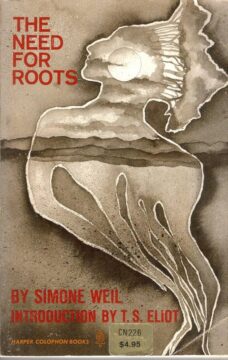 The French philosopher Simone Weil was a soul at odds with herself and with a world of affliction. The causes she espoused as a social activist and the faith she professed as a mystic were urgent to her and, as she saw it, to humanity. Little of her work was published in her lifetime, but since her death, at thirty-four, in 1943, it has inspired an almost cultlike following among readers who share her hunger for grace, and for what she called “decreation”—deliverance from enthrallment to the self.
The French philosopher Simone Weil was a soul at odds with herself and with a world of affliction. The causes she espoused as a social activist and the faith she professed as a mystic were urgent to her and, as she saw it, to humanity. Little of her work was published in her lifetime, but since her death, at thirty-four, in 1943, it has inspired an almost cultlike following among readers who share her hunger for grace, and for what she called “decreation”—deliverance from enthrallment to the self.
Eminent theologians have revered Weil (Paul Tillich, Thomas Merton, Pope Paul VI), and so have writers of the first rank, especially women (Hannah Arendt, Ingeborg Bachmann, Anne Carson, Flannery O’Connor, Susan Sontag). Albert Camus hailed her as “the only great spirit of our time.” T. S. Eliot credited her with a “genius akin to that of the saints.” But Weil herself might have objected to these consecrations as a form of “idolatry,” which she defined as a misguided thirst for “absolute good.” Nothing is so absolute about her as the difficulty of parsing her contradictions.
more here.
Enjoying the content on 3QD? Help keep us going by donating now.
Friday Poem
The End and the Beginning
After every war
someone’s got to tidy up.
Things won’t pick
themselves up, after all.
Someone’s got to shove
the rubble to the roadsides
so the carts loaded with corpses
can get by.
Someone’s got to trudge
through sludge and ashes,
through the sofa springs,
the shards of glass,
the bloody rags.
Someone’s got to lug the post
to prop the wall,
someone’s got to glaze the window,
set the door in its frame,
No sound bites, no photo opportunities
and it takes years.
All the cameras have gone
to other wars.
The bridges need to be rebuilt,
the railroad stations, too.
Shirt sleeves will be rolled
to shreds.
Someone, broom in hand,
still remembers how it was.
Someone else listens, nodding
his unshattered head.
But others are bound to be bustling nearby
who’ll find all that
a little boring.
From time to time someone still must
dig up a rusted argument
from underneath a bush
and haul it off to the dump.
Those who knew
what this was all about
must make way for those
who know little.
And at last nothing less
than nothing.
Someone’s got to be there
in the grass that covers up
the causes and effects
with a cornstalk in his teeth,
gawking at clouds.
by Wislawa Szymborska
from Contemporary World Poetry
Vintage Books, 1996
Enjoying the content on 3QD? Help keep us going by donating now.
Abigail Goldman’s American Horror Story
Jerry Saltz at Vulture:
Abigail Goldman’s micro-renderings of scenes of carnage, created at 1:87 scale, are a testament to the pull of the small, especially at a time when art is getting bigger and more elaborately produced. In one tableau that could have come out of Breaking Bad, a shipping storage container in a gravel field contains a bloody corpse and a woman with her hands up as two gunmen nearby take aim. Another features a powder-blue van in a desert and two men warming their hands over an oil-drum fire, a mutilated corpse splayed between them. A third features a machine-gun-toting Queen Elizabeth and her two corgis standing over a dead man. Behind her, the paintings, the china in the cabinet, the upholstered chairs, the patterned wallpaper — all are perfect.
Goldman calls her works “Die-o-ramas.” I call them a cross between nightmares, documentary, and horror. In her day job, she is an investigator for a public defender outside Seattle, researching horrendous incidents of death, murder, and suicide.
more here.
Enjoying the content on 3QD? Help keep us going by donating now.
Thursday, September 12, 2024
Two books on 1933 examine a dangerous time
Costică Brădăţan in Commonweal:
 When history is about to take an abrupt turn, is there something in people’s eyes or in their secret longings that pre-announces it somehow—and that minds of a particular cast (poets and visionaries or perhaps psychiatrists) can read clearly and even put into words? If the world were to end next year, who would know about it today, and how? When we look back on the past, we say sometimes that there were “clear signs” that this or that event would happen, that the “writing was on the wall.” But how many of these signs were really there, and how many are projected back by hindsight? The problem is of special importance to historians. How can the historian single out a past event, focus on it exclusively, and pretend not to know what came after? How can a scholar fake ignorance?
When history is about to take an abrupt turn, is there something in people’s eyes or in their secret longings that pre-announces it somehow—and that minds of a particular cast (poets and visionaries or perhaps psychiatrists) can read clearly and even put into words? If the world were to end next year, who would know about it today, and how? When we look back on the past, we say sometimes that there were “clear signs” that this or that event would happen, that the “writing was on the wall.” But how many of these signs were really there, and how many are projected back by hindsight? The problem is of special importance to historians. How can the historian single out a past event, focus on it exclusively, and pretend not to know what came after? How can a scholar fake ignorance?
Florian Illies doesn’t answer these difficult questions, but he does something even better: he takes them further, complicates and deepens them, and in so doing points to their unanswerability. In 1913: The Year before the Storm, he transports us to a point in time when history was about to make such a dramatic turn. We know that now, but those he writes about—artists, writers, politicians, philosophers—did not and could not. They lived their lives as innocently as we live ours and could not have cared less about the state of the world, dancing blindly on the edge of a volcano.
More here.
Enjoying the content on 3QD? Help keep us going by donating now.
Why the next pandemic could come from the Arctic
Christian Sonne in Nature:
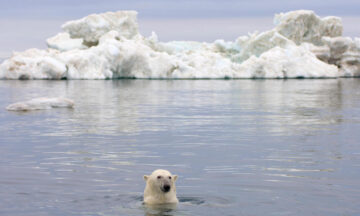
The Arctic is under stress, that much is known. Between 1979 and 2021, the region warmed four times faster than the global average, with effects — as yet poorly understood — on its ecology and ability to store carbon, on global sea levels and on wider ocean-circulation and weather patterns.
Add in the effects of biodiversity loss and pollution, and people often refer to a triple planetary crisis. I think we should actually be talking about a quadruple crisis. Since starting research in the Arctic in 1997, I have spent nearly all of my summers there, monitoring changes in pollution levels, habitats and food webs using a ‘One Health’ approach that integrates effects on wildlife, humans and ecosystems. And it’s becoming clear that, as the Arctic warms, its environment degrades and human activities increase, new health threats are emerging. In particular, the Arctic is likely to become a hotbed for zoonotic diseases that spill over into humans from other animals. That threat was brought home to all of us by the COVID-19 pandemic. We need to take seriously the possibility that the next pandemic could come from the north.
More here.
Enjoying the content on 3QD? Help keep us going by donating now.
How might LLMs store facts?
Enjoying the content on 3QD? Help keep us going by donating now.
Book Review: “On The Edge” by Nate Silver
Matt Glassman in Matt’s Five Points:
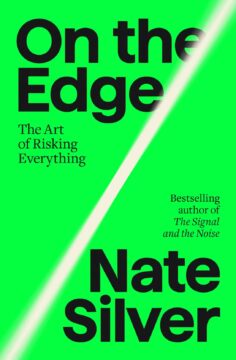 In 2016, Nate Silver was panned in the press and on social media for his presidential election forecast. His model gave Clinton a 71% chance of winning, and she lost. He and other forecasters totally missed the Trump phenomena; the polls were off and Trump was more popular than expected. For many people, the bloom was off the rose. Silver—who had so brilliantly predicted all the details of the 2008 and 2012 elections—got it wrong. He wasn’t infallible after all.
In 2016, Nate Silver was panned in the press and on social media for his presidential election forecast. His model gave Clinton a 71% chance of winning, and she lost. He and other forecasters totally missed the Trump phenomena; the polls were off and Trump was more popular than expected. For many people, the bloom was off the rose. Silver—who had so brilliantly predicted all the details of the 2008 and 2012 elections—got it wrong. He wasn’t infallible after all.
The catch is that it was actually a great forecast. The 29% chance Silver’s model gave Trump was significantly higher than most of the other prediction models—some of which gave Clinton as much as a 99% chance to win—and, crucially, much more bullish on Trump than public betting markets in gambling houses around the globe, which thought Trump had about a 17% chance to win. If you believed Silver’s model, it was a blaring siren to bet on Trump and against the conventional wisdom. Those who followed Silver’s advice got a massive return on their investment.
This analytical split—between people who saw Silver’s 2016 forecast as a huge miss and those who understood it as astute and financially lucrative—goes to the core of his fantastic new book, On the Edge: The Art of Risking Everything.
More here.
Enjoying the content on 3QD? Help keep us going by donating now.
Hilary Putnam on Negative Theology
Enjoying the content on 3QD? Help keep us going by donating now.
Thursday Poem
Introduction to Poetry
I ask them to take a poem
and hold it up to the light
like a color slide
or press an ear against its hive.
I say drop a mouse into a poem
and watch him probe his way out,
or walk inside the poem’s room
and feel the walls for a light switch.
I want them to waterski
across the surface of a poem
waving to the author’s name on the shore.
But all they want to do
is tie the poem to a chair with rope
and torture a confession out of it.
They begin beating it with a hose
to find out what it really means.
by Billy Collins
from Poetry 180
Random House 2003
Enjoying the content on 3QD? Help keep us going by donating now.
How Gerhard Richter Found The Future In Düsseldorf
Alexander Menden at Prospect Magazine:
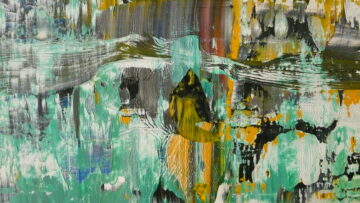 In the spring of 1961, Gerhard Richter, a young East German artist noted mainly for his portraits and socialist wall paintings, slipped through the last chink in the Iron Curtain—West Berlin—and fled to the Federal Republic of Germany. A few weeks later, he justified this move in a letter to his former teacher at the Dresden Academy of Fine Arts: “My reasons are mainly professional. The whole cultural ‘climate’ of the West can offer me more, in that it corresponds better and more coherently with my way of being and working than that of the East.”
In the spring of 1961, Gerhard Richter, a young East German artist noted mainly for his portraits and socialist wall paintings, slipped through the last chink in the Iron Curtain—West Berlin—and fled to the Federal Republic of Germany. A few weeks later, he justified this move in a letter to his former teacher at the Dresden Academy of Fine Arts: “My reasons are mainly professional. The whole cultural ‘climate’ of the West can offer me more, in that it corresponds better and more coherently with my way of being and working than that of the East.”
Richter, 29 at the time and deeply impressed by the works of Lucio Fontana and Jackson Pollock, which he had seen during a visit to the contemporary art exhibition Documenta in Kassel two years earlier, wanted the same stylistic and thematic freedom of those artists. He intended to settle in Munich. But an old friend from Dresden, the sculptor Reinhard Graner, who had moved to the West before Richter, strongly advised him against it, saying: “No, for God’s sake, Düsseldorf is the city of art!”
more here.
Enjoying the content on 3QD? Help keep us going by donating now.
I’m a Daughter of Iran and I’m Under Attack
Elica Le Bon in Newsweek:
 My first visceral memories of the regime in Iran were formed before I was born. My mother had been in the notorious Evin prison in the 1980s, when hanged bodies were lined up along the entrance path so that prisoners knew what to expect. Although naturally apolitical, my mother was seen with a dissident. She narrowly escaped lynching, only because the dissident learned of my mother’s arrest and turned herself in.
My first visceral memories of the regime in Iran were formed before I was born. My mother had been in the notorious Evin prison in the 1980s, when hanged bodies were lined up along the entrance path so that prisoners knew what to expect. Although naturally apolitical, my mother was seen with a dissident. She narrowly escaped lynching, only because the dissident learned of my mother’s arrest and turned herself in.
The dissident was, of course, hanged.
Perhaps this is just a Persian mother’s retelling, notorious for its embellishment, but according to her, back then, she was one of the “only people to make it out alive.” When she left the prison, she demanded that a guard walk behind her so she wouldn’t be shot in the back. The regime was never more brutal than in its nascent years of life. Anyone caught with anti-regime materials—books, articles, publications, or anything of the sort—was executed. I often marvel at how miraculous my own existence is. It wasn’t just one time that my mother narrowly escaped death; it happened three times.
More here.
Enjoying the content on 3QD? Help keep us going by donating now.
What 5 Doctors Are Excited About in Kidney Cancer Research
Linda Carroll in Time Magazine:
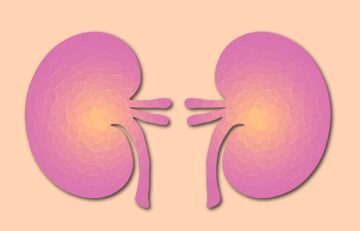 With multiple game-changing developments over the past two decades, kidney cancer patients are now living longer and better. A big part of the reason is that many are being diagnosed at earlier stages of the disease, when it can often be more easily treated and sometimes cured. Even when cancers are caught later, advances in medications and in methods of targeting cancer cells are significantly extending survival.
With multiple game-changing developments over the past two decades, kidney cancer patients are now living longer and better. A big part of the reason is that many are being diagnosed at earlier stages of the disease, when it can often be more easily treated and sometimes cured. Even when cancers are caught later, advances in medications and in methods of targeting cancer cells are significantly extending survival.
“When I started two decades ago, the average survival for patients with advanced kidney cancer was one year,” says Dr. Brian Rini, a professor of medicine at the Vanderbilt University Medical Center in Nashville. “Now, the median survival is between five and six years. It’s amazing.” The growing use of scanning technologies in medicine overall has been one of the most important changes over the last couple of decades: Tumors are being detected during scans for non-cancerous conditions.
More here.
Enjoying the content on 3QD? Help keep us going by donating now.
Philosophy Of The People
Joseph M Keegin at Aeon Magazine:
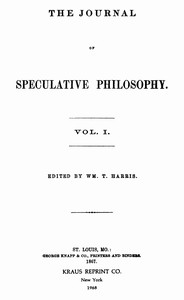 The prairie schools of philosophy were not just local curiosities; over the course of their roughly three decades of existence, they exerted a lasting influence on US intellectual culture, however much they themselves have been forgotten. They encouraged the growth of similar philosophical societies from the Midwest to the Eastern seaboard, in places like Chicago, Philadelphia and Massachusetts; they established a model for small-group adult education, contrasted with, for instance, the popular Lyceum model of the large public lecture; and they rekindled an interest in the study of classical, Medieval and early modern philosophy and literature among US thinkers who, influenced by transcendentalism and pragmatism, were all too often focused on what was simply useful or new.
The prairie schools of philosophy were not just local curiosities; over the course of their roughly three decades of existence, they exerted a lasting influence on US intellectual culture, however much they themselves have been forgotten. They encouraged the growth of similar philosophical societies from the Midwest to the Eastern seaboard, in places like Chicago, Philadelphia and Massachusetts; they established a model for small-group adult education, contrasted with, for instance, the popular Lyceum model of the large public lecture; and they rekindled an interest in the study of classical, Medieval and early modern philosophy and literature among US thinkers who, influenced by transcendentalism and pragmatism, were all too often focused on what was simply useful or new.
‘We have listened too long to the courtly muses of Europe,’ Ralph Waldo Emerson had bemoaned in his speech ‘The American Scholar’ (1837). The philosophers of the prairie had no such complaint with the minds of the Old World.
more here.
Enjoying the content on 3QD? Help keep us going by donating now.
Wednesday, September 11, 2024
WH Auden and the Last of Englishness
Rachel Cooke in The Guardian:
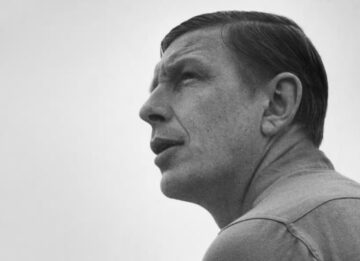 Twenty-five years ago, my father and I were out walking in the Peak District. Beside us was his dog; ahead of us was a familiar fell, low and craggy and bare. My dad was boasting, as he often did, about the cairn at its top, a pile of rocks he claimed to have nurtured into existence, when from nowhere the silhouette of a man suddenly appeared beside it: first a head, then a torso, and finally a pair of legs. “Ah,” said my dad, sage where I was startled. “A caver.” We stood and squinted. Moments later, another man materialised, and then another: a human string of sausages, pulled from the limestone’s darkest reaches as if from a top hat.
Twenty-five years ago, my father and I were out walking in the Peak District. Beside us was his dog; ahead of us was a familiar fell, low and craggy and bare. My dad was boasting, as he often did, about the cairn at its top, a pile of rocks he claimed to have nurtured into existence, when from nowhere the silhouette of a man suddenly appeared beside it: first a head, then a torso, and finally a pair of legs. “Ah,” said my dad, sage where I was startled. “A caver.” We stood and squinted. Moments later, another man materialised, and then another: a human string of sausages, pulled from the limestone’s darkest reaches as if from a top hat.
The memory of this came to me as I read The Island: WH Auden and the Last of Englishness, a new study of the poet and his world. In part, this was because Auden visited the same hills as a schoolboy; even before he famously became transfixed by the abandoned lead mines of the northern Pennines, he had seen – in 1919, when he was 12 – the Blue John Cavern near Castleton in Derbyshire, a place he would later refer to as one of the names on his “numinous map” of sacred spots. Mostly, though, it was because caving is a good metaphor for the experience of reading Nicholas Jenkins’s book, which runs to 543 pages (minus its extensive notes). Headlamp at the ready, I thought, whenever I opened it.
En route, there are lovely moments.
More here.
Enjoying the content on 3QD? Help keep us going by donating now.
The Earth’s remaining 8 bear species
Leon Vlieger at The Inquisitive Biologist:
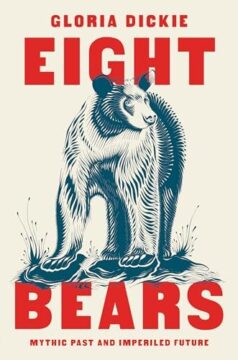 Though bears loom large in our collective imagination, their flesh-and-blood counterparts are increasingly losing ground. Eight Bears, the debut of environmental journalist Gloria Dickie, draws on visits to key hotspots where Earth’s remaining bear species come into conflict with humans. By interviewing scores of people, both conservationists and those suffering at the paws of these large predators, this nuanced and thought-provoking reportage asks whether humans and bears can coexist.
Though bears loom large in our collective imagination, their flesh-and-blood counterparts are increasingly losing ground. Eight Bears, the debut of environmental journalist Gloria Dickie, draws on visits to key hotspots where Earth’s remaining bear species come into conflict with humans. By interviewing scores of people, both conservationists and those suffering at the paws of these large predators, this nuanced and thought-provoking reportage asks whether humans and bears can coexist.
The roots of this book go back to 2013 when Dickie started a master’s in environmental journalism and midway settled on bear-human conflicts in the Rocky Mountains. Since then, she has travelled to Asia and the Americas to see first-hand all eight extant bear species (spectacled, sloth, panda, moon/Asiatic black, sun, American black, brown/grizzly, and polar bear*).
More here.
Enjoying the content on 3QD? Help keep us going by donating now.
Breeding for IQ
Emily R. Klancher Merchant in the Los Angeles Review of Books:
 In the Operation Varsity Blues scandal of 2019, 50 wealthy parents were charged with trying to get their children into elite universities through fraudulent means. The story dramatically demonstrated the lengths to which some parents will go to ensure their children’s acceptance into places like Stanford, Yale, Georgetown, and USC. Actress Lori Loughlin and her husband, fashion designer Mossimo Giannulli, bribed athletic coaches to recruit their children for sports they did not play. Actress Felicity Huffman and private equity mogul William E. McGlashan Jr. were among the parents who paid to falsify their children’s SAT and ACT test scores. Those who were caught faced criminal charges, yet the scandal also shed light on the perfectly legal tactics used by wealthy parents to get their children into elite institutions, such as endowing buildings or hiring expensive consultants.
In the Operation Varsity Blues scandal of 2019, 50 wealthy parents were charged with trying to get their children into elite universities through fraudulent means. The story dramatically demonstrated the lengths to which some parents will go to ensure their children’s acceptance into places like Stanford, Yale, Georgetown, and USC. Actress Lori Loughlin and her husband, fashion designer Mossimo Giannulli, bribed athletic coaches to recruit their children for sports they did not play. Actress Felicity Huffman and private equity mogul William E. McGlashan Jr. were among the parents who paid to falsify their children’s SAT and ACT test scores. Those who were caught faced criminal charges, yet the scandal also shed light on the perfectly legal tactics used by wealthy parents to get their children into elite institutions, such as endowing buildings or hiring expensive consultants.
The Pennsylvania couple Malcolm and Simone Collins have taken a different approach. For their two daughters, Titan Invictus and Industry Americus, the Collinses used eugenics.
More here.
Enjoying the content on 3QD? Help keep us going by donating now.
Chandra and Eddington, pioneers of astrophysics – with Martin Rees
Enjoying the content on 3QD? Help keep us going by donating now.
